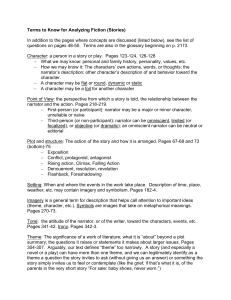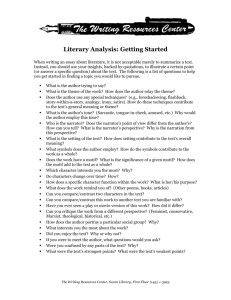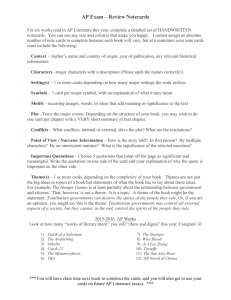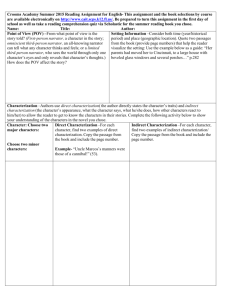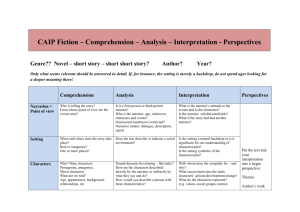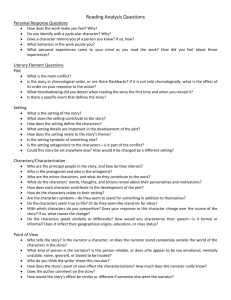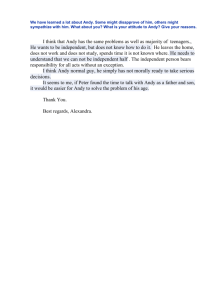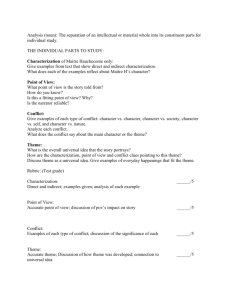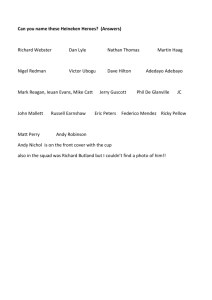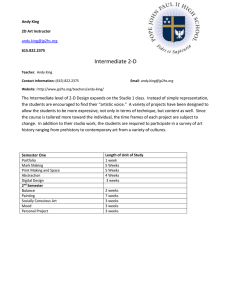Close Reading #3
advertisement
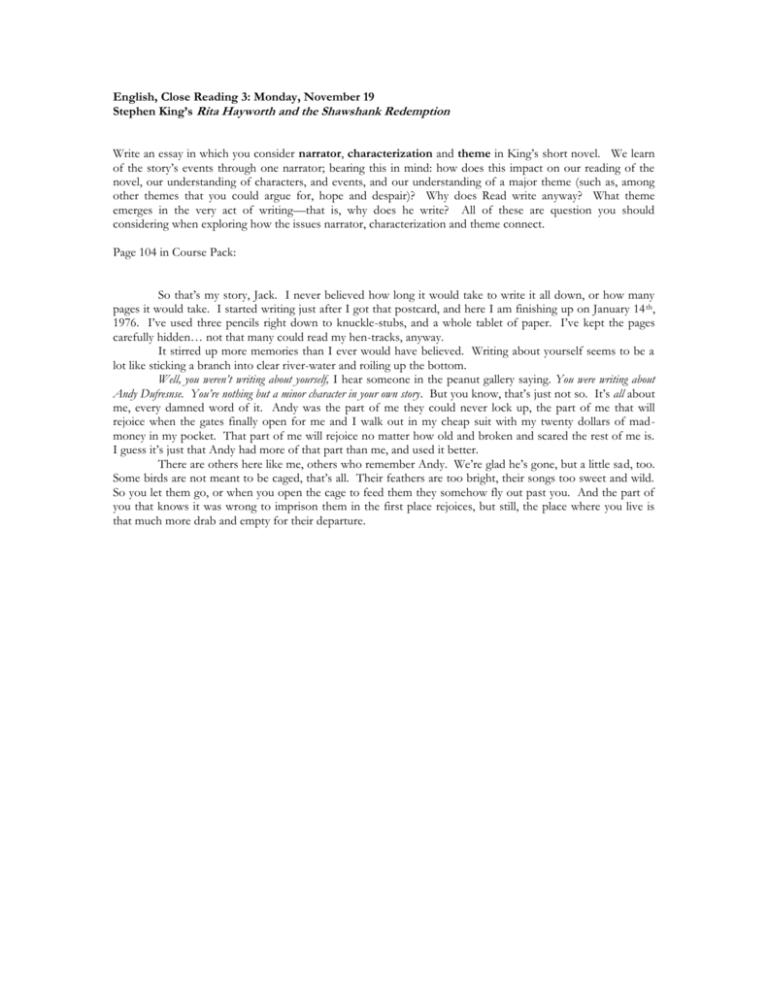
English, Close Reading 3: Monday, November 19 Stephen King’s Rita Hayworth and the Shawshank Redemption Write an essay in which you consider narrator, characterization and theme in King’s short novel. We learn of the story’s events through one narrator; bearing this in mind: how does this impact on our reading of the novel, our understanding of characters, and events, and our understanding of a major theme (such as, among other themes that you could argue for, hope and despair)? Why does Read write anyway? What theme emerges in the very act of writing—that is, why does he write? All of these are question you should considering when exploring how the issues narrator, characterization and theme connect. Page 104 in Course Pack: So that’s my story, Jack. I never believed how long it would take to write it all down, or how many pages it would take. I started writing just after I got that postcard, and here I am finishing up on January 14 th, 1976. I’ve used three pencils right down to knuckle-stubs, and a whole tablet of paper. I’ve kept the pages carefully hidden… not that many could read my hen-tracks, anyway. It stirred up more memories than I ever would have believed. Writing about yourself seems to be a lot like sticking a branch into clear river-water and roiling up the bottom. Well, you weren’t writing about yourself, I hear someone in the peanut gallery saying. You were writing about Andy Dufresnse. You’re nothing but a minor character in your own story. But you know, that’s just not so. It’s all about me, every damned word of it. Andy was the part of me they could never lock up, the part of me that will rejoice when the gates finally open for me and I walk out in my cheap suit with my twenty dollars of madmoney in my pocket. That part of me will rejoice no matter how old and broken and scared the rest of me is. I guess it’s just that Andy had more of that part than me, and used it better. There are others here like me, others who remember Andy. We’re glad he’s gone, but a little sad, too. Some birds are not meant to be caged, that’s all. Their feathers are too bright, their songs too sweet and wild. So you let them go, or when you open the cage to feed them they somehow fly out past you. And the part of you that knows it was wrong to imprison them in the first place rejoices, but still, the place where you live is that much more drab and empty for their departure.

